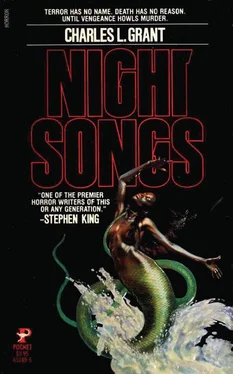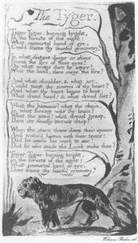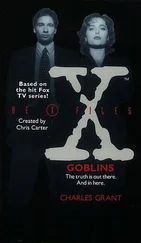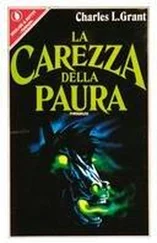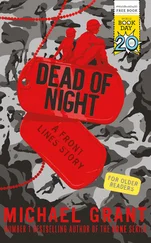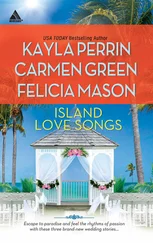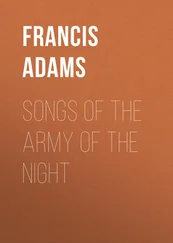Colin stifled an obscenity when his palm caught the blade's jagged edge. He yanked the toy shovel free, noting as he did that the man wore no socks.
"Never did like me," the lawyer repeated, and he placed a manicured hand at his waist to cushion another belch. Then he pulled a scarlet handkerchief from his jacket pocket and blew his nose loudly. A deft flick of his wrist and the handkerchief was gone. An eyebrow arched. "I note that you and Peg Fletcher are seeing quite a lot of each other lately. A stunning woman. Stunning and smart."
Colin couldn't help a smile. "Now how the hell do you know that, Warren?"
"I perambulate, Colin, I perambulate." A palm smoothed his waistcoat meticulously. "I may be a drunk, but I'm not blind. Ah, the stories I could tell you…"
Colin believed it. Harcourt was everywhere, but no one thought him a snoop. Four years ago he and his estranged wife were returning from a mainland party. Both had been drinking, though neither was completely drunk. According to Warren, there was an argument, and his eyes left the road. Too late he discovered his car plunging down the ramp toward the ferry's dock-and the ferry was on the other side. Harcourt survived; his wife did not. And he had confessed one evening when he was very nearly sober that it wasn't guilt at her dying that kept liquor his company; it was guilt that he didn't miss her as much as he thought he should.
So he drank, and wandered, and once a year told Colin he could bring the woman back if only he had the nerve.
A gull shrieked, and Harcourt looked up, startled. "Damned things. Damned… things." Suddenly he seemed deflated. "Lilla is an odd child, actually," he said, sniffing, hiccuping. "Not like she used to be, not at all. I do like her singing, though. I gather it's grated on some people's nerves, but I rather like it." He turned his head, his eyes hidden by the hat's sagging brim. "If you should find an opportunity at the ceremonies, please tell her I enjoy her singing."
Colin could think of nothing else to do but nod; Warren was gone, the drunk had returned. Then: "Hey, look, I got poor Matt waiting for me back there. See you around, okay? Take care."
He trotted off without waiting for a response, stopping only once, at the foot of the boardwalk. The lawyer was already strolling down the beach, oblivious to the waves soaking his trousers. At one point he turned, held his shoes close to his eyes and stared at them. He shrugged vaguely before lowering them and moved on, topcoat flapping about his shins, hat trembling in the sea breeze riding in with the tide.
Colin shook his head slowly with a faint, sad smile, then remembered the mutilated gull, and spun around and raced back to Matt.
* * *
They came out of the trees onto a small blacktop parking lot sandwiched between the extended log cabin of the Anchor Inn and a battered deserted cottage. Matt headed directly for the street; Colin, however, slowed as he was struck by an unbidden memory of his first visit to Haven's End:
Had he arrived by air he knew he would have seen a heavily forested island four miles long and slightly less than half that wide, rocks and trees on the west and north shores, beautiful sand on the east, a clearing just off center where the town had been settled.
But he had driven, and came out of the mainland woods to the Sterling Brothers Ferry, a pair of huge, high-floating boats like ungainly rafts that carried eight to ten cars and as many passengers as could be squeezed between them. No overhead canopy, a tiny shingled cabin jutting out amidships. The surprisingly smooth ride across the two miles of deep, choppy water to the terminus at Bridge Road, the slow drive for three-quarters of a mile before the trees fell away on the left for the Sunset Motel. Another quarter mile and suddenly there were side streets, four of them until Bridge Road met the T-intersection with Neptune Avenue.
He remembered grinning his relief at the sight of the town: clapboards and cedar shakes, Colonials and Federals, all riding high on thick brown pilings or five-foot foundations designed to provide passage for the sea whenever it rose above the tide and tried to sweep the island clean. Thriving lawns and lovely trees. The trees. Save for the town and the beaches, the entire island was tree covered, right up to the point where the cave-pocked southshore cliffs heaved out of the sea.
The sea.
Wherever he turned, the mark of the sea. Air salt-sharp and softly damp, the ground round-pebbled and sandy; the fishermen who made the island famous and kept it from starving when the tourist trade faltered; the motifs of the motels, the Anchor Inn, the Clipper Run; the ghosts of smugglers and gunrunners who'd used it during the previous century; the whispers of pirates who might have used it before; the occasional gold coin, a rusted cannon, a hint of bones found in a cave… and the ocean itself, its voice louder at night when a lullaby was needed, muted in daylight when there was living to be done. There was power in that gentle land, power that reminded when the winter * storms screamed, cutting off the ferry and eroding the beaches. A power, he thought, that kept the people strong. They fed off it, lived off it, never forgot what it warned might happen if they ever grew careless.
It was perfect. Exactly what he had in mind while he tried to figure out why he could talk well to kids like Matthew and not to adults like Pegeen.
He inhaled deeply, and saw Matt staring at him from the curb. "Something the matter, kid?"
"You all right?"
"Fine. Just fine."
He glanced at the Anchor Inn and decided he'd rather eat at home, caught up with Matt, and they crossed the street together. On the corner was the small, fieldstone police station, behind it on the next corner the hedge-enclosed parking lot of Robert Cameron's Clipper Run restaurant. Several cars were parked near the entrance; diners from the mainland, he guessed as he and the boy continued walking west. Most of the islanders wouldn't be eating until after the funeral.
From one of the yards farther down the street came a sudden gust of laughter; boys playing baseball, he thought, or «a fast game of soccer. That Matt wasn't with them wasn't surprising. He preferred studying history or the way colors worked than studying how to steal second base from a fast pitcher. It set him apart, but the boy didn't seem to mind.
"Mr. Ross?"
He sighed loudly. "Good Lord, Matt, don't you ever stop asking questions?"
"But my mother-"
"I know, I know. Your mother says you have to ask if you want to learn anything."
Matt squinted up at him. "How'd you know that?"
"It's a great secret you learn when you get to be grown-up."
Matt considered that for a moment while he kicked at a stone and toed it into the gutter. Then he gestured with his free hand back toward the restaurant. "You think you're gonna win the election?"
"You going to vote for me?"
"I'm too young."
"Well, I'll just have to win anyway. It'll be close without your vote, though. Mighty close."
"My mother says she's gonna vote for you. She says she doesn't want to see Mr. Cameron running things and putting in all the gambling and stuff. She says it isn't fitting… whatever that means." Almost a half block in silence before he spoke again. "If they build those hotels and things like Mr. Cameron wants, they'll cut down all the trees, right?"
"That's right."
"Then the squirrels won't have any place to live!"
"Right again."
The boy shook his head. "That isn't fair, Mr. Ross." Nope, it sure isn't."
"I wish I could vote for you," he said softly.
Colin placed a hand gently on his shoulder and looked up just as they reached Atlantic Terrace, the town's last cross-street. Three houses down-a small, white, clapboard saltbox-a woman stood on the high narrow porch. She waved, and Colin waved back.
Читать дальше
